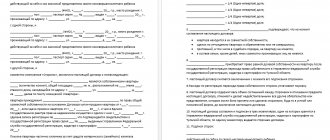The Constitution of the Russian Federation guarantees that a citizen's rights to property are protected from any kind of encroachment, regardless of who they (the encroachment) come from. The Civil Code of the Russian Federation clearly states in what ways property rights can be acquired and on what grounds it is terminated. All these measures are required to protect people from illegal attacks on their property, as well as to truly ensure the property integrity of legal entities/individuals. persons
Grounds for termination of ownership rights
To begin with, the grounds for termination of property rights are divided into two large categories:
- voluntary;
- forced.
Let's look at the features of each category in more detail.
Voluntary deprivation of property rights
This is the simplest and most universal method, which consists in transferring property rights from one person to another through the expression of will, that is, we are talking about a voluntary transfer. Yes, termination of rights can also be carried out forcibly, as is clearly stated in the legislation. Be that as it may, this is possible solely on the grounds that are prescribed in the Civil Code of the Russian Federation.
Article 235 of the Civil Code of the Russian Federation. Grounds for termination of ownership rights
And the code specifies grounds that are relatively new for ordinary citizens, including the renunciation of property rights. This rule provides that the owner has the right to voluntarily give up his property.
There are two ways to make such a refusal:
- make a public statement about it;
- perform some specific action that clearly demonstrates that the citizen is giving up his property (he can, for example, simply throw it away).
However, abandonment of property does not yet mean loss of rights to it. Until the new owner properly formalizes the right to own this item, the latter may well be returned to the previous owner, and he may also be charged with obligations regarding compensation for damage caused (by this item) to third parties.
Note! Ownership rights may also cease if the thing perishes or is destroyed. And the difference between these concepts lies only in the way in which the thing ceased to exist, and whether someone will be held responsible for the disappearance.
Article 236. Renunciation of ownership rights
Relinquishment of property
A citizen or organization can voluntarily withdraw from the right to own property. But such a decision can only be made by individuals/legal entities, which means that neither state nor other authorities have the right to refuse property belonging to them.
We also note that refusal, as stated above, does not imply a waiver of obligations to maintain the property. Moreover, the owner’s responsibilities even include paying taxes.
How can you deprive a share in an apartment without consent?
As a result of privatization or a purchase and sale transaction, property is often re-registered to several owners at once. Although the property is still considered a single property, it belongs not to a single owner, but to several persons who must determine the procedure for using common equipment, non-residential premises, and comply with the requirements for the maintenance and servicing of the property. If coexistence is impossible, the parties have the right to agree to buy out the share by mutual consent , followed by re-registration of the right to property.
The transaction to buy out a share from co-owners does not require prior approval , since the right of priority purchase belongs to the current co-owners. If the owners of the shares have made a general decision and signed a purchase and sale agreement, it is enough to have it certified at a notary office and contact the registration authority to make changes to the right to property.
Unfortunately, too often co-owners of housing fail to agree on the rules of cohabitation, or the conditions for the sale of square meters are not suitable, and they have to look for other options for resolving the problem within the framework of the procedure provided for by law. Forced redemption is possible, but requires certain circumstances:
- The size of the share is negligible to ensure comfortable living for all co-owners.
- There are applicants from neighbors who are willing and ready to buy out the part belonging to another.
- One of the apartment owners has created conditions that infringe on the interests of others, and the attitude towards the property does not meet the requirements for paying for the maintenance and maintaining the property in order.
There is no way to avoid a court decision if the seller does not agree to vacate the premises or give up the share, and also if the buyer offered an amount that does not correspond to the market value of a similar part of the property. When it comes to the alienation of housing, the parties act on the basis of the constitutional norm given in paragraph 3 of Art. 35 of the Constitution of the Russian Federation, which prescribes seizure only if there is a corresponding court order.
It is important to take into account that in the absence of the owner’s guilt in causing discomfort to the remaining residents, there are no grounds for the forced seizure of housing without payment of the required compensation. Usually, this happens when one of the co-owners intends to combine several shares, with the obligatory provision of compensation payment within the amount prescribed by the court.
The situation is different when the tenant ignores his obligations for maintenance, repairs, and payment for utilities, using utility resources and common property in full. Although defaulters are not welcome and have no defense, a forced seizure of a debtor's share is unlikely. FSSP employees, when trying to collect debts, will first of all pay attention to more liquid property. If the debtor owner is deprived of property, he will receive compensation after deducting the debt and the costs of enforcement proceedings.
Forced deprivation of property rights
All situations when this right can be terminated forcibly are stated in Article 235 of the Civil Code of the Russian Federation. And this list can be expanded if appropriate changes are made or new legislative acts appear.
If the property is seized, its value must be compensated to the owner. There are a number of cases in which such a withdrawal is possible; let’s take a look at them.
Article 238 of the Civil Code of the Russian Federation. Termination of a person’s right of ownership to property that cannot belong to him
- If a thing cannot belong to a person due to a ban/restriction on its circulation. All such things are discussed in the relevant laws.
- If an actually abandoned residential property, which no one is looking after, was sold at public auction.
- If real estate is alienated due to the seizure of the plot of land on which this property is located.
- If a participant in shared ownership is paid compensation, since separating his share from the property is not possible.
- If cultural property that was previously mismanaged is purchased.
Article 240 of the Civil Code of the Russian Federation. Redemption of mismanaged cultural property - If we are talking about requisition of property.
- If pets are purchased for which the previous owners did not provide proper care.
Article 241 of the Civil Code of the Russian Federation.
Redemption of pets if they are mistreated The article talks about several more grounds on which property can be forcibly confiscated. However, almost all of these grounds have one common feature: they almost always imply private property, owned either by legal entities or individuals.
Note! You should also be aware that in some cases property may be alienated, but the owner is not entitled to any compensation for this.
We are talking mainly about those situations when a penalty is imposed on property in connection with the obligations of its owner so that the latter can pay off its creditors. All this is also stated in the relevant laws.
Cases in which you can lose your property rights
As a rule, deprivation of property rights is carried out only as a last resort when the rights and interests of other citizens have been violated. In what other cases can deprivation of ownership of real estate occur?
- Antisocial behavior of neighbors. If there are constant parties and rows behind the wall, noise and feasts at night, then this may serve as a reason for the eviction of the owners. The main thing is to file a class action lawsuit for regular violation of order.
- Use of the apartment for other purposes. The owner may lose real estate if he uses it not for personal residence, but as a hostel, hotel, cafe or nightclub.
- Debt for utility bills. A tenant can be evicted from his own apartment for late payment of utility bills and the accumulation of a very large debt. The selected properties will be sold to cover all accumulated debts.
- Uncoordinated redevelopment. Unauthorized redevelopment of the apartment can lead to the collapse of the building, which threatens the life and health of its other residents. Therefore, it is not surprising that the housing inspection can deprive the owner of the rights to residential real estate. Of course, if the owner comes to his senses and does not restore its layout to its former state.
- Mismanagement. Is the apartment not cleaned and in a state of disrepair? The premises have not been renovated for a long time, and communications are becoming unusable? Of course, all this poses a direct threat to the lives of the residents of the building in which the apartment is located. Therefore, it can be seized from the owner by depriving him of his rights to property.
Let us draw your attention to the fact that deprivation of the owner’s property rights and his eviction from the apartment are extreme measures that are used only in cases where other methods of influencing the negligent owner have not produced any effect. First, the owner will receive administrative penalties and fines.
More details about property seizure
So, there are many reasons in the Civil Code why a person can be forcibly deprived of his rights to a thing. But it is worth adding that all these grounds should not contradict the Constitution, more precisely, Article 35 of the third part. The article states that no one's property can be alienated except by appropriate court order. In addition to the reasons listed above, an item may be confiscated for improper behavior of the owner. Moreover, according to the law, property can be confiscated regardless of the actions of the owner, if the interests of society or the state as a whole require it.
Constitution of the Russian Federation, Article 35
How to evict the owner from an apartment?
The procedure for eviction of the owner occurs approximately in this order:
- residents of the house turn to law enforcement agencies for help in order to rein in the raging apartment owner;
- if this does not produce any effect, after collecting evidence, they must file a class action lawsuit;
- if the court has made a decision to evict the tenant, then his property is put up for public auction, and part of the money covers the owner’s debts (if any).
Nationalization
Nationalization means the transfer of property of citizens or organizations in favor of the state. The grounds for nationalization are not indicated in the Civil Code, but they are determined by the interests of the state, while the will of the owners does not play any role. This process is only possible under certain conditions. Thus, the basis may be compensation for damage and the value of property in the manner prescribed by Article 306 of the Civil Code. However, this, it is worth noting, does not entirely correspond to Article 35 of the Basic Law, which states that the seizure of property can be carried out only with preliminary and equivalent compensation.
Article 306 of the Civil Code of the Russian Federation. Consequences of termination of ownership by force of law
On the scale of priorities, the provisions of the Constitution are undoubtedly higher than other norms. This means that during nationalization it is necessary to determine the procedure for equivalent compensation of property. In addition, compensation for the share is also provided. Only after the property has been compensated is the owner deprived of rights to it. To do this, the local government must file a corresponding claim.







